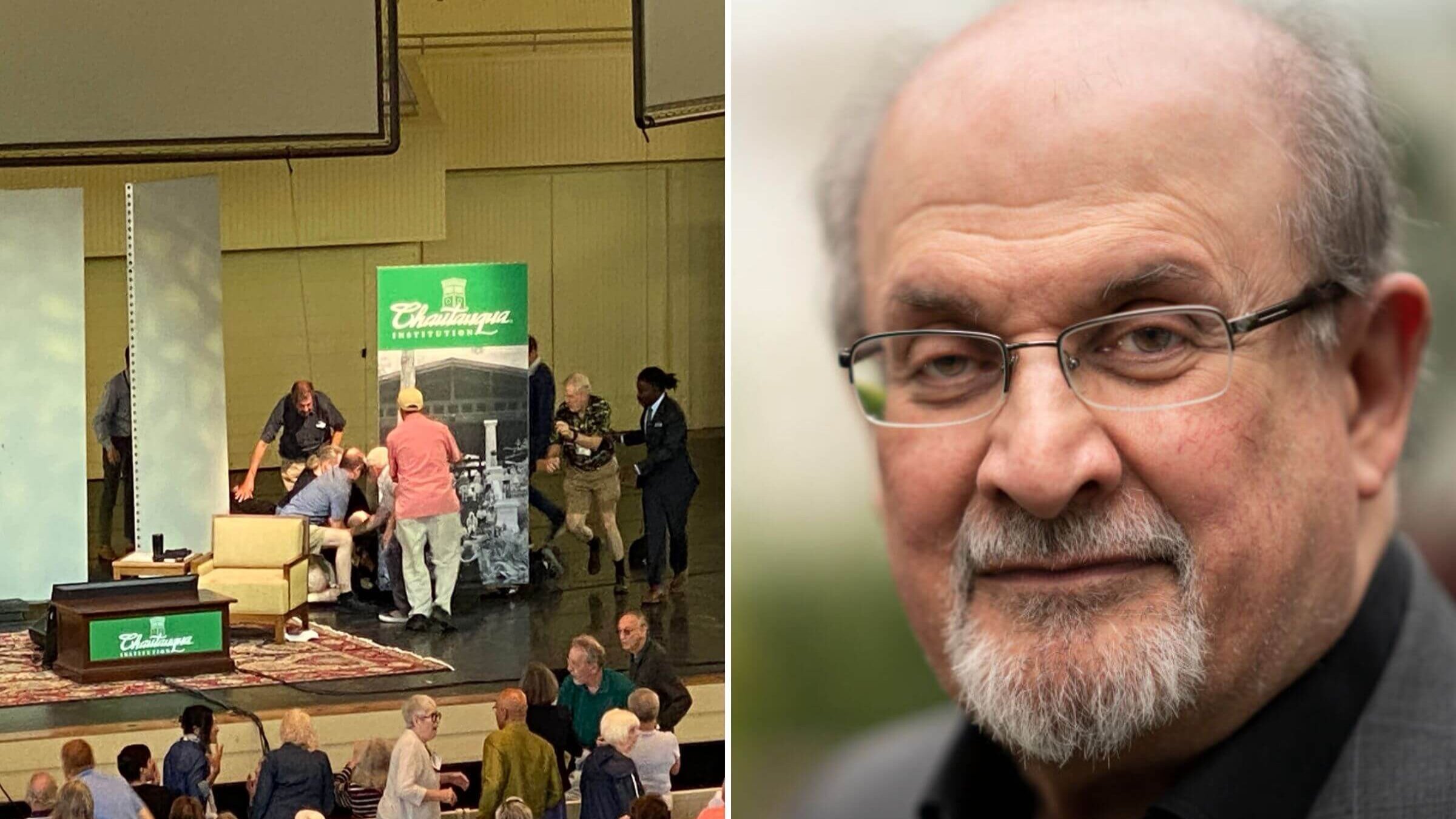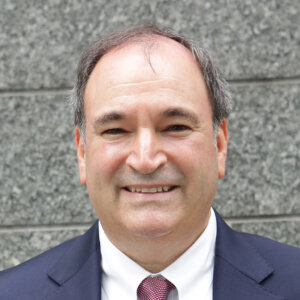I’m a rabbi who witnessed the attack on Salman Rushdie in Chautauqua. Here is how we can combat this type of hate
The brutal assault on the famed author in Chautauqua is a potent reminder of the power of civics education

On Aug. 12, celebrated author Salman Rushdie was stabbed at an event at the Chautauqua Institution. Photo by Charles Savenor & David Levenson/Getty Images Leven
When my wife and I first planned our trip upstate, a conversation between Salman Rushdie and Henry Reese at the Chautauqua Institution stood out to us as a programmatic highlight we did not want to miss. The two men would be discussing how America can support and protect political writers and creative expression. Considering Rushdie’s harrowing experience of being singled out as a target of a fatwa by Iran after the publication of “The Satanic Verses” over 30 years ago, we were eager to hear his thoughts about how best to ensure free speech today.
Our experience tragically morphed into something unexpected and surreal shortly after Rushdie and the moderator took their seats to great applause. A man jumped on the stage and began pummeling Rushdie. From where I sat 75 feet away, I could not see that the assailant was wielding a knife, only his arm going up and down repeatedly, thereby silencing the main speaker and all those in attendance.
#SalmanRushdie just attacked onstage at @chq @NBCNews @ABC @cnnbrk pic.twitter.com/I1XT6AmkhK
— Charles Savenor (@CharlieSavenor) August 12, 2022
“This never happens at the Institution,” people said aloud as much to themselves as those around them, as we collectively tried to make sense of what transpired.
Later that day we walked over to the amphitheater, where a pile of flowers, placards of hope and a candle adorned the entrance that had been closed since the attack. Watching the maintenance team scrub blood off the stage, I gasped at the realization that this violent attack had transformed this platform for inspiration and wisdom into a crime scene.
I attended this event not just for my own edification but also because it connects to my work at Civic Spirit, an organization that promotes and provides training in civic education to faith-based schools — Jewish, Catholic, Christian, and Islamic — with 4.5 million students nationwide. In our three-pronged approach, we cultivate civic belonging, democratic fluency and civic skills at a time when our country needs bridge building, understanding and trust more than ever.
While scrubbing away the blood and forming a prayer circle allowed Chautauqua Institution to reopen its cherished communal space, the most effective way to reclaim civility, community and shared responsibility in America is through education. More than planting seeds that will blossom in the future, civic education prepares young adults to become knowledgeable participants and stakeholders in this great democratic republic.
With rising distrust in government and a growing sense of helplessness in young people, civic education constitutes a constructive path forward. Unlike their public counterparts, day schools are not required to include civic education. At this polarized moment, it is vital that we not only ensure that our day schools focus on civics but also that teachers and administrators are supported in this endeavor at their parent’s kitchen table and spiritual leaders’ pulpits.
On Aug. 12, over 2,000 people at Chautauqua expected to learn how our society can encourage and support open dialogue and foster understanding across divides. Sadly what we witnessed was a brutal violation of the fundamental values of the Institution and America itself.
On a trip to Chautauqua over a hundred years ago, President Teddy Roosevelt asserted that Chautauqua Institution and its educational approach to dialogue and exploration represent “America at its best.” The attack on Salman Rushdie at Chautauqua reminds us of the great and worthy efforts incumbent on each generation to actualize this aspiration again and again.
To contact the author, email [email protected].
















